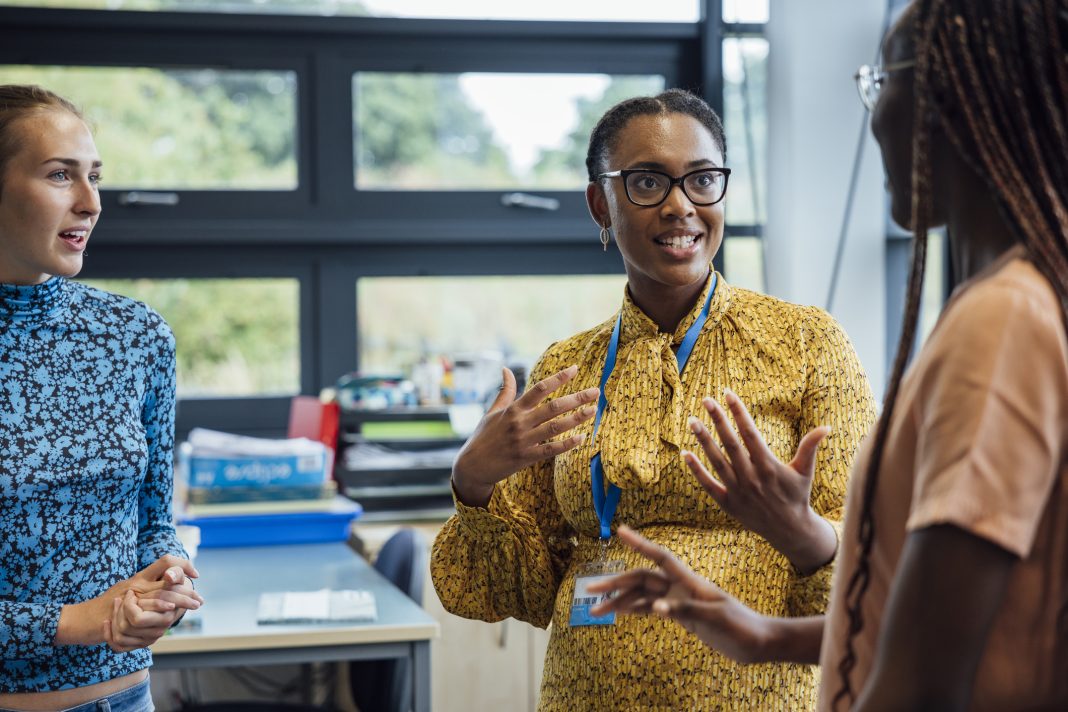Is civic engagement a potential path to decolonizing education? Here, Geraldine Balzer from the University of Saskatchewan provides an intriguing response
Educators at all levels find themselves enmeshed in systemic structures of power, which significantly impact their ability to build relationships within the community. Colonization and its concurrent political and economic structures laid the foundations for many of the systemic structures, creating inequities that are evident globally. As societies grapple with the resulting inequities actualized, for example, through racism, sexism, and classism, the economic disparities are increasingly apparent.
Those economic disparities are most evident in the lands and peoples that have been colonized, particularly amongst Indigenous peoples of the Global North and citizens of the Global South, many of whom have immigrated to the Global North. Educators are very aware of the challenges these inequities bring to their classrooms and are increasingly challenged to find ways to mitigate the harms caused and dismantle the systemic structures that perpetuate those harms.
Unthinking colonialism or decolonization requires education that increases awareness of the issues, provides a variety of methods to increase and counter the challenges, and opportunities to engage in and practice new understandings. Civic engagement and global citizenship may be one avenue to bring about awareness and change.
Civic engagement for decolonizing education research
Saltmarsh, Hartley, & Clayton (2009) advocate for democratic engagement, believing that it “seeks the public good with the public and not merely for the public as a means to facilitating a more active and engaged democracy” (p. 9) and “holds the promise of transforming not only the educational practice and institutional identity of colleges and universities but our public culture as well” (p. 14). While they recognize civic engagement’s potential and promise, finding ways to bring global education into primary, secondary, and tertiary classrooms is not simple.
Existing prescribed curricula do not often leave space for community engagement and have often been constructed to undergird the systems that benefit from colonialism. Traditional civics education, often folded into Social Studies or History, is designed to help students understand government processes but not necessarily to critique structures; decolonization demands a critique of existing systems.
To critique existing systems, educators need to understand the power structures that impact the lives of all students, those disempowered by colonial systems and those empowered by the same structures. Castells, as quoted in Goss et al. (2016), offers this definition: “Power is the relational capacity that enables a social actor to influence asymmetrically the decision of other social actor(s) in ways that favor the empowered actor’s will, interests, and values” (p.xxi).
Understanding the ways in which individuals can influence decisions requires opportunities to observe various political and societal structures at work. These opportunities to engage come in various forms, such as global citizenship education, service-learning, and civic education, each with a slightly different focus, all with the same intent – to offer students opportunities to engage with communities, locally and globally.
Understanding how systemic inequities impact individuals and communities is the first step in decolonizing power structures. Relationships are key to understanding the impacts of these structures: “Racism and inequality are not solved in the abstract; we begin by having people share their stories in safe spaces where they can expect to be heard and responded to with compassion, and we determine how to use this to direct future action” (Morton & Bergbauer, 2015, p. 27).
Entering into relationships outside of known communities requires careful scaffolding to mitigate the preconceived knowledge learners hold; often, moving far afield is easier than remaining local. Dislocation creates a discomfort that can provide more easily scaffolded experiences, while visiting new neighborhoods invites simplistic comparisons. Healey, M., Flint, A., & Harrington, K. (2016) note that partnership “brings to the fore tensions around inclusivity and scale, the power dynamics and ethics of learning relationships, reward and recognition, and transition and sustainability. However, partnership is part of the picture of increasing the active engagement of all members of… communities in their own learning and development, and in the creation of engaging learning and teaching practice and policy. These tensions are not barriers to the development of partnership, but areas where considered and critical attention can create levers for change. Exploring partnership, and addressing these tensions openly, creates new spaces for collaborative and constructive dialogue about teaching and learning.” (p. 15)
Decolonizing education: Can colonial systems be dismantled and new structures imagined?
Providing opportunities to build partnerships across communities, partnerships based on an authentic desire to understand the other and remove barriers to full participation in society, requires the commitment of educators and the courage of all participants. Vulnerabilities will be exposed as marginalized groups voice their discontent and privileged groups recognize their role in marginalization. However, only through the tearing down of walls can colonial systems be dismantled and new structures imagined. Decolonization requires dismantling centuries of harm; we each are responsible for entering into the discomfort.
References
- Goss, G., Pedro-Carañana, J., & Gould, M. (2016). Talking back to globalization. New York: Peter Lang.
- Healey, M., Flint, A., & Harrington, K. (2016). Students as partners: Reflections on a conceptual model. Teaching & Learning Inquiry 4(2), 8-20. https://doi.org/10.20343/ teachlearninqu.4.2.3
- Morton, K. & Bergbauer, S. (2015). A case for community: Starting with relationships and prioritizing community as method in service-learning. Michigan Journal of Community Service Learning 22(1), 18-31. https://eric. ed.gov/?id=EJ1137413
- Saltmarsh, J., Hartley, M., & Clayton, P. (2009). Democratic engagement white paper. New England Resource Center for Higher Education Publications 45. https://scholarworks.umb.edu/nerche_pubs/4


